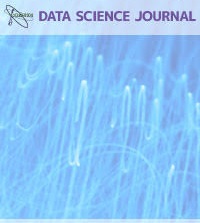
Persistent identifiers (PID) for scholarly resources have been around now for more than 20 years. Since the initial launch of the Handle.net we have seen a proliferation of PID into many use cases. Some PID systems have become established parts of the science information infrastructure, in other areas we are seeing work in progress, and new use cases being proposed. In addition to the PID use cases a number of critical questions arise. These include:
- What progress has been made – what works and what lessons have we learned?
- Are there key gaps in the ways that research outputs are structured, accredited and exposed?
- How are issues of interoperability between different PID systems to be handled, and what are the implications of doing so?
- How do we ensure trust in PIDs and their long-term sustainability? What is the relationship between PIDs, metrics and data quality?
- What are the roles of the various stakeholders, e.g. funders, publishers, researchers, learned societies, repository managers?
Areas of discussion in this issue include:
- Usage of PIDs within and across disciplines (e.g. earth sciences, life sciences, medicine, digital humanities, cultural heritage)
- New use cases (e.g. provenance, dynamic data, fine-grained access, reference, credit, metrics, quality, standards)
- Communities of practice and governance around PID systems
- New forms of scholarly output, communication, linked data and business models
The papers will be published in a special issue on this topic for Data Science Journal <http://datascience.codata.org/>. Guest editors: Fiona Murphy, Jens Klump, Mark Parsons, Tobias Weigel.Important Dates
The timeline for the editorial process is:
- Deadline for paper submissions: 31 October 2016
- Editors’ decision: 16 January 2017
- Deadline for revisions: 1 March 2017
- Publication: Second Quarter 2017
Data Science Journal is an electronic open access journal and charges moderate article processing charges (APC) of 350 GBP for full papers [1]. DSJ runs an article-based workflow, so if some authors abide by the deadlines but others don’t, the former will still be able to see their papers published online as soon as they’re ready. The final issue would be published when all the papers are complete.Contact
Please contact one of the Guest Editors for further information:Fiona Murphy (fionalm27@gmail.com)Jens Klump (Jens.Klump@csiro.au)Mark Parsons (parsom3@rpi.edu)Tobias Weigel (weigel@dkrz.de)
